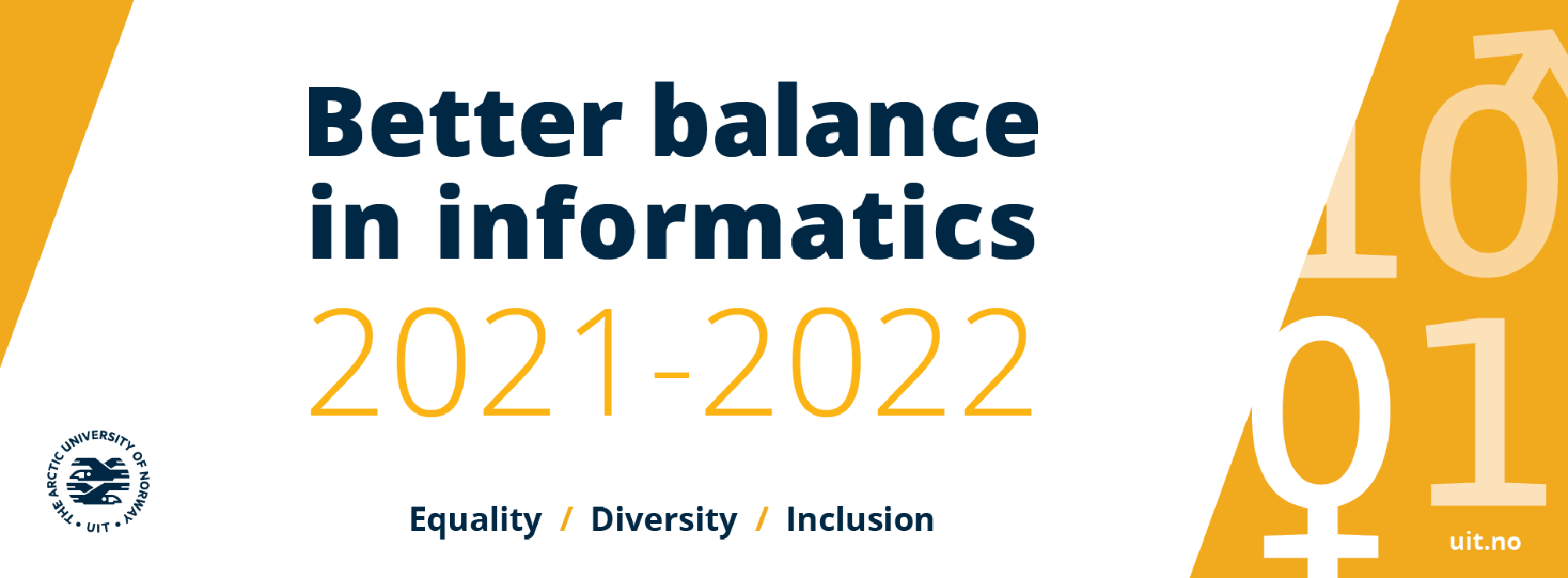
Project Description
Current situation
The Department of Computer Science at UiT has only 13% female students, 14% female PhD candidates, and 21% female faculty members. These figures follow a general trend in the field of Computer Science, both in academia and in the industry, where diversity is low at best. The group of people that produce research, design the curriculum and teach Computer Science is not diverse; it represents only a subset of society. So, it comes as no surprise that this results in Computer Science being more appealing to this subset of society.
The goal of BBI
BBI aims to make Computer Science appealing to all. We want to make the Computer Science community diverse, starting with you---the Computer Science students at UiT. We believe a diverse student body will hatch a diverse Computer Science academy at UiT, which will in turn sustain an inclusive community encompassing both academia and industry.
Action
To achieve our goal of inclusion and diversity, we need your thoughts and opinions. BBI will organize structured discussion sessions, where we invite students to share their thoughts about
- Why they selected Computer Science as their field of study.
- How the Computer Science student community at UiT could become more diverse.
- Whether they aspire to pursue an academic career in Computer Science.
BBI will use knowledge gathered from these discussions to assemble a list of measurements for making the Computer Science community at UiT more diverse. This will be presented to the administration by the end of the 2022 spring semester. Do not miss the opportunity to be part of this discussion; do not miss the opportunity for your voice to be heard.
National initiative
BBI is funded through the BALANSE-program by the Research Council of Norway. Gender balance in the senior-level academic positions and research management (BALANSE, 2012-2020) is an action-oriented program aimed at promoting gender balance in the Norwegian science community. The Research Council of Norway stipulates that “the Norwegian science community must mirror the population as a whole and must incorporate the experiences and views of men and women alike” (own translation). It is also important that future researchers observe role models that they can identify with, otherwise many talents may be overlooked. The Research Council of Norway describes the current lack of gender balance in the Norwegian science community as a lag in social development and calls for more knowledge about the mechanisms behind this situation.
BBI services the vision of the BALANSE-program by following a bottom-up approach. Creating a balanced environment between the students of the Department of Computer Science at UiT is a prerequisite for achieving gender balance in senior-level academic positions and research management in this Department. For this reason, BBI first focuses on understanding the experiences and aspirations of the students.
